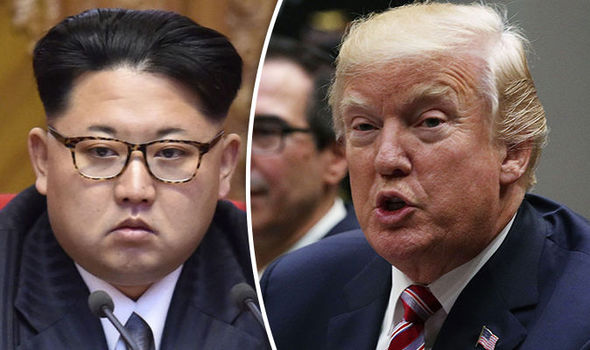Special to WorldTribune.com
 By Donald Kirk
By Donald Kirk
Now the real games begin; the interplay between North and South Korea and between the U.S. and both Koreas. The players may have shifted some of the pieces around the chessboard during these most political of Winter Olympics, but it’s much too early to know what happens next, much less the final moves.
One seemingly substantive change is that the U.S. may be marginally closer to talking without preconditions. The Americans don’t seem to be saying North Korea has to show some willingness to give up its precious missiles and nukes before they’ll sit down at the table. Instead, U.S. Secretary of State Rex Tillerson has indicated he’s ready to schmooze any time.
 Would the North Koreans be equally prepared for anything other than occasional meetings between the head of their U.N. mission in New York and Joseph Yun, the U.S. diplomat charged with dealing with them? That’s problematical for two reasons. One, the North Koreans might be reluctant to talk knowing the Americans would insist on raising the nuke issue. Second, North Korea wants to get South Korea and the U.S. to cancel their upcoming military exercises.
Would the North Koreans be equally prepared for anything other than occasional meetings between the head of their U.N. mission in New York and Joseph Yun, the U.S. diplomat charged with dealing with them? That’s problematical for two reasons. One, the North Koreans might be reluctant to talk knowing the Americans would insist on raising the nuke issue. Second, North Korea wants to get South Korea and the U.S. to cancel their upcoming military exercises.
That brings us to whatever moves the South might have in mind. President Moon Jae-In has most dramatically opened up a dialogue with the North simply by going along with their conditions for joining in the Olympics.
Most essentially, he agreed to North and South Koreans marching under the one-Korea flag, the image of the Korean Peninsula in light blue against a white field. Never before in Olympic history has any country, much less the host, agreed to march under any flag but its own.
After North and South decided to march together, all else fell into place, most importantly the letter that Kim Jong-Un’s younger sister, Yo-Jong, gave Moon, inviting him to Pyongyang.
Nice move, but North Korea has other moves to make before seriously preparing for an inter-Korean summit. For one thing, getting back to those military exercises, the North is demanding, yet again, that South Korea cancel them. For another, North Korea needs to see what Moon is prepared to do about sanctions imposed by the U.N. after each of its tests of nuclear warheads and long-range missiles.
Moon may have seemed like a pushover when he went along with North Korea’s demands for the Olympics, but he may not be that easy to deal with when the North Koreans have all gone home. It’s not likely, for instance, that he will want to drop the war games with the U.S., set to begin after the Paralympics, and he may not do much about sanctions either.
The Americans, notably U.S. Vice President Mike Pence, have said they envision still stronger sanctions, the “maximum pressure” needed to get Kim Jong-Un to talk about his nukes and missiles. Will the Americans impose these intensified sanctions before plunging into military exercises with the South Koreans?
The timing of the next American move will be really interesting. Undoubtedly the Americans will want to be sensitive to Moon’s wishes. He may in turn distance himself from anything that would seriously upset the North Koreans. He might tell the Americans, notably President Trump in one of their phone conversations, let’s not spoil the post-Olympic atmosphere. Or he might say, do what you have to do, just leave me out of it. (It’s hard to believe at this stage he would actually applaud more sanctions.)
What matters most, however, will be whatever Kim Jong-Un decides. Assuming the war games go ahead, will we be treated to more North Korean tests of long-range missiles capable of delivering a warhead to the U.S.? Might he order a seventh nuclear test? Or might he settle for unleashing a firestorm of rhetoric against the U.S. while preparing to receive Moon in Pyongyang for the third inter-Korean summit just as his father, Kim Jong-Il, received Kim Dae-Jung in June 2000 and then Roh Moo-Hyun in October 2007?
There are other unpredictable moves too. Not many people believe Trump, having decided diplomacy wasn’t working, would go through with the “military option,” maybe a strike on North Korea’s nuclear and missile facilities.
Conventional wisdom has it that the U.S. would wait until North Korea does something directly against U.S. targets, notably military bases. Just as surely, it’s assumed, more or less, that Kim Jong-Un is not going to order such an attack, knowing the holy hell that would inflame him as a result.
Korean history, however, is nothing if not surprising. In this great game, it’s impossible to be sure of the next moves, much less predict the outcome.
Donald Kirk has been covering war and peace in the region for decades
